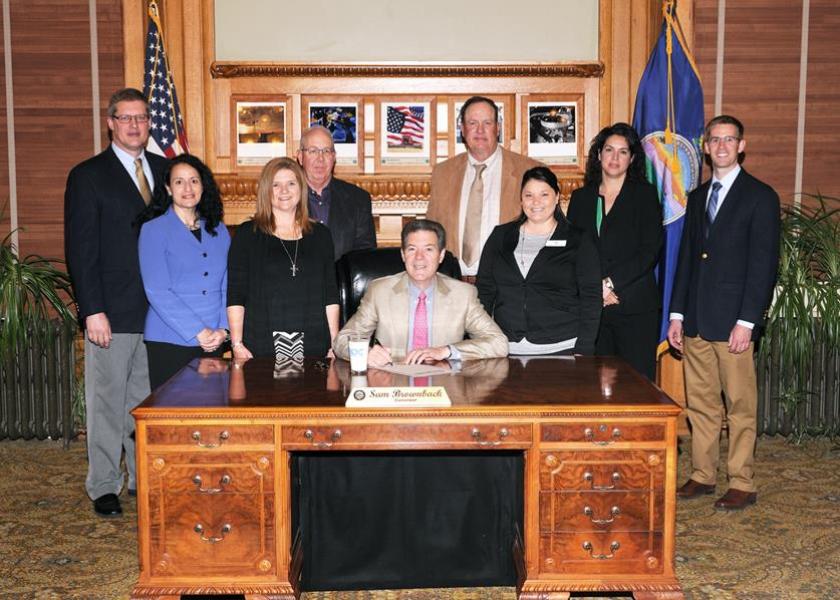Governor Brownback Declares June as Kansas Dairy Month

Kansas is becoming known around the country as the dairy frontier. The industry is continuing to experience exponential growth, rising by 6.1 percent in 2014, making Kansas one of the fastest growing dairy states in the United States. Showing appreciation for the hardworking dairymen and women who toil 365 days a year to provide wholesome and nutritious dairy products, Gov. Sam Brownback has declared June as Kansas Dairy Month.
“We are very proud of the accomplishments Kansas dairymen have made to make our state one of the fastest growing dairy states,” Governor Brownback said. “Last year, Kansas produced over 3.1 billion pounds of milk, which equates to nearly 350 million gallons of milk. Kansas dairymen are doing their part to supply the growing demand for dairy products around the world.”
Kansas is home to over 325 dairy farms and 143,000 dairy cows. With spacious land areas, an adequate climate and readily available feed to dairymen, it is highly suited to the dairy industry. In 2014, the value of milk produced in Kansas was $746 million. Kansas dairy farmers help support and stimulate their individual communities and the state’s economy.
During the proclamation signing, Gov. Brownback also recognized the important work of the National Dairy Council which is celebrating its 100th anniversary this year. The National Dairy Council has provided important community and school programs and partnerships with local food banks, and has been a dedicated supporter of nutrition research and education.
A vision of the Kansas Department of Agriculture is to advocate for and promote the agriculture industry, the state’s largest industry, employer and economic contributor. Proclaiming the month of June as Kansas Dairy Month helps promote and advocate for an important sector in Kansas agriculture.
Follow the Kansas Department of Agriculture on Facebook and Twitter to learn more about Kansas Dairies and celebrate the industry all through the month of June.
Source: Kansas Department of Agriculture







